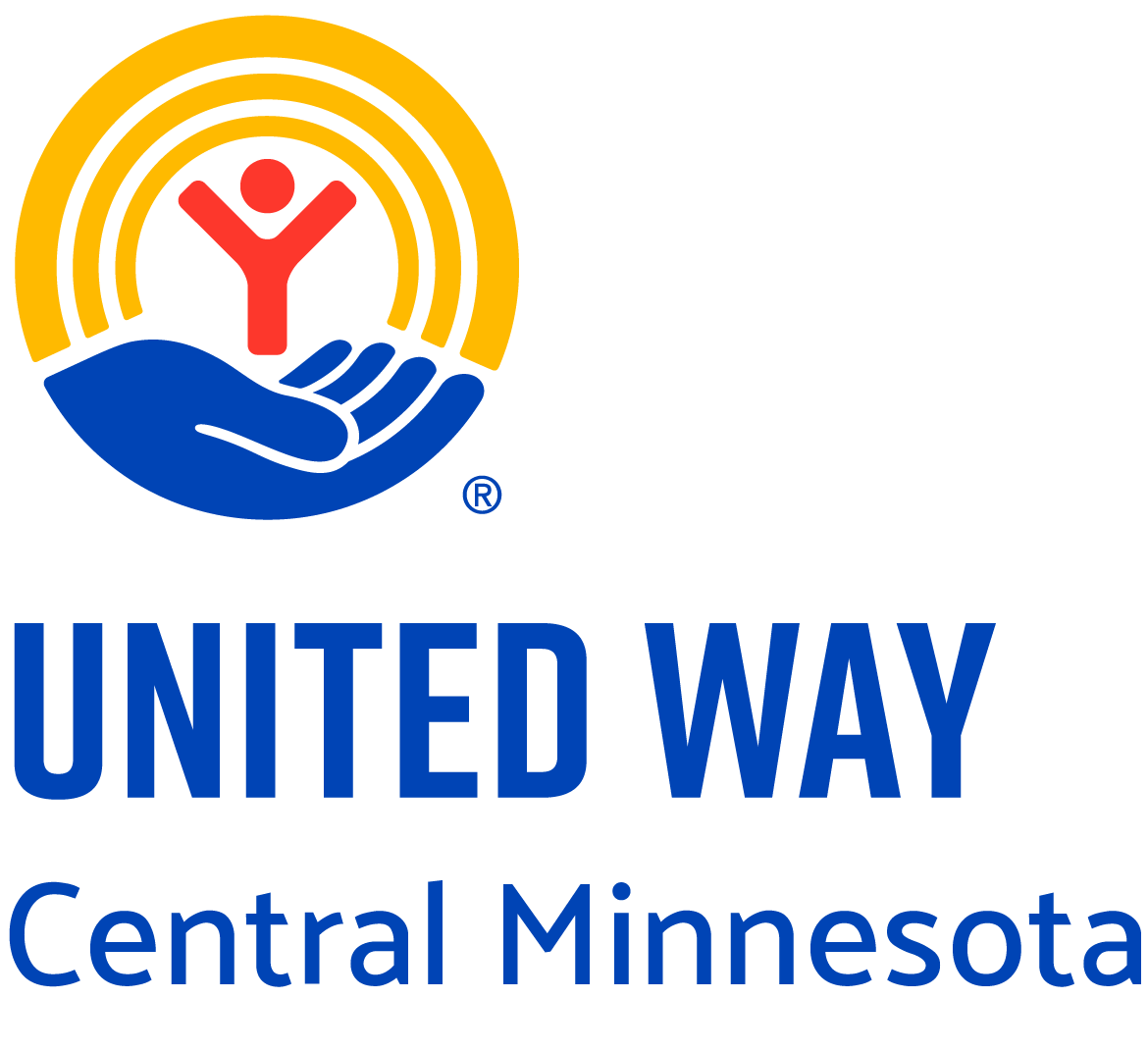When United Way of Central Minnesota’s (UWCM) Community Child Care Coordinator Sara Hagen talks to people about our area’s youngest citizens—babies, toddlers and preschoolers—her eyes light up. Her infectious laughter and teacher’s voice, as she calls it, fills the room when she recalls encounters as an early childhood educator, most recently within the Monticello School District, before joining United Way in 2022.
 Hagen (shown right) was hired to bring her expertise about early education and child care to the table. She knows any cracks in the intricate support system for kids and caregivers mean trouble. “If a child doesn’t get high-quality early care and education, that affects development and how learners achieve and perform later in school. If families cannot figure out how to secure child care, then that is about how they may or may not be able to work, which is an economic issue. And if employers can’t attract and retain workers because the area has too few daycare spots, that’s a workforce issue.”
Hagen (shown right) was hired to bring her expertise about early education and child care to the table. She knows any cracks in the intricate support system for kids and caregivers mean trouble. “If a child doesn’t get high-quality early care and education, that affects development and how learners achieve and perform later in school. If families cannot figure out how to secure child care, then that is about how they may or may not be able to work, which is an economic issue. And if employers can’t attract and retain workers because the area has too few daycare spots, that’s a workforce issue.”
Listening and Learning From the Inside Out
United Way identified the child care crisis by listening to communities before those concerns garnered wider public attention during the COVID-19 pandemic. UWCM began to see that child care was becoming increasingly challenging to secure throughout communities within its service area. Family providers were fleeing the sector, and child care costs were eating up a significant portion of a family’s budget. In 2019, UWCM formed the Central Minnesota Child Care Response Fund Advisory Council, comprised of many community partners, child care practitioners and providers, business owners and state legislators to delve into the problems.
When she started in her position in 2022, Hagen wanted to learn how the community could effectively and collectively bring about change for Central Minnesotans who couldn’t find or afford child care. “There was much learning about the crisis from the inside out. Many of the advisory committee’s initial conversations were about constructing more buildings. The assumption was, ‘If we build, the children will come and all will be well.’ But I was hearing that building more spaces doesn’t solve the deeper problems, especially in rural communities where there aren’t a lot of child care workers to put to work inside those buildings. This was a multi-layered issue, and every community is unique. The sector’s inability to attract and retain child care workers is a key issue in greater Minnesota.”
Many Partners, Many Solutions
Solving multi-layered issues has a financial component. UWCM formed the Central Minnesota Child Care Response Fund to financially back programs that drive solutions in the crisis. Fortifying child care workers’ earning power helps attract and retain employees in the field. UWCM’s funding pays for no-cost, monthly licensing and continuing education training for child care workers within United Way’s local service area, allowing them to save on professional development costs. Nearly one thousand providers have now utilized these trainings.
Hagen works with legislators, the Minnesota Department of Education, the Minnesota Department of Economic Development and partners at St. Cloud State University and St. Cloud Technical and Community College to identify educational pathways for currently employed child care workers who want to advance their credentials. At the same time, these partners encourage high school and college students to enter the early education field. “We continue to work with community organizations to elevate awareness about how important early childhood is. While wages are starting to increase, many early education teachers and child care workers are not economically mobile. They will not stay in the profession long, and having teachers and child care workers come and go out of positions creates inconsistency in the classroom, impacts the business of child care and early education and, most importantly, kids and families. We have to make child care a viable career for people.”
Supporting child care workers who already work in the field while also increasing local child care spots requires intentional connection, innovation and collaboration. Hagen, in partnership with the UWCM advisory council, developed an online toolkit for local businesses and employers. They can learn about child care, how the crisis affects the economy and the community and ways to enact solutions.
As Hagen listened to area families and employers, she realized some could not access appropriate child care because they needed specialized options that were not readily available in greater Minnesota. She contacted a child care center in the Twin Cities metropolitan area that provides mental health and pediatric therapies, autism treatment, home visits and disability services integrated into child care for all early learners. Because of Hagen’s initiative and ability to connect partners to resources, a major Central Minnesota employer will soon offer local families and employees new child care options.
United Way secured a grant in 2023 that allowed Milestones, a UWCM invested partner, the ability to establish a Shared Service Alliance (SSA) to assist local child care centers and family providers by pooling resources, sharing costs and delivering services to children and caregivers in streamlined and efficient ways. Providers, especially in low-income communities, can share the financial burdens of operating high-quality programs and hire centralized staff to execute operations, business support, accounting and maintenance across multiple provider sites. SSAs help local early care and education businesses become more robust. Because of UWCM’s initial grant investment and Hagen’s coordination, Milestones was able to leverage a statewide grant and expand the SSA work in the future.
Big Wins and Dreams of the Future
Even with these big wins under her belt, Hagen has goals and dreams for Central Minnesota child care in the future. She would love to help develop substitute teacher and care provider groups, giving child care workers much-needed time off when they need to leave the classroom or care environment—while still offering consistent services for kids and families.
The cost of food for young learners can be high for centers and providers that don’t qualify for subsidized food programs like those available in public schools. Hagen is exploring farm-to-child care programs that could reduce those food expenses while giving kids healthy options.
Hagen wants to expand her focus on communities throughout the United Way of Central Minnesota service area because she knows each community has different needs. What works in St. Cloud or Sartell might not be feasible in places like Cold Spring or Albany.
One thing is sure about what’s ahead: Hagen will continue to make new connections and bring new voices to the table to make change. “I am proud that United Way is a connector in this and is seen as a go-to resource for other organizations that want to try new ways of doing things in their communities.”
Child Care Issues Affect Everyone
Most of all, Hagen wants people to know that child care affects every person in the community—individuals, families, kids, educators, providers, employers—and that we all thrive when children receive high-quality early care and education. As she told the crowd at a recent child care summit hosted by United Way, “This crisis affects everyone. It really does. And it takes collaboration and out-of-the-box thinking and action to solve it.”

.jpg)



